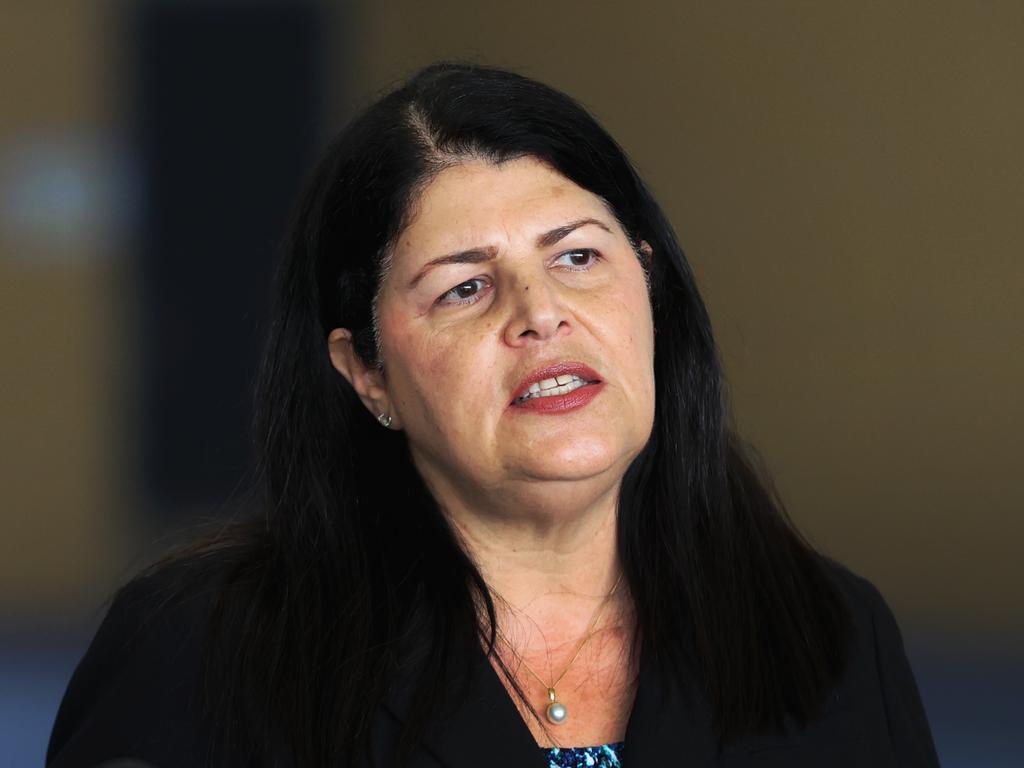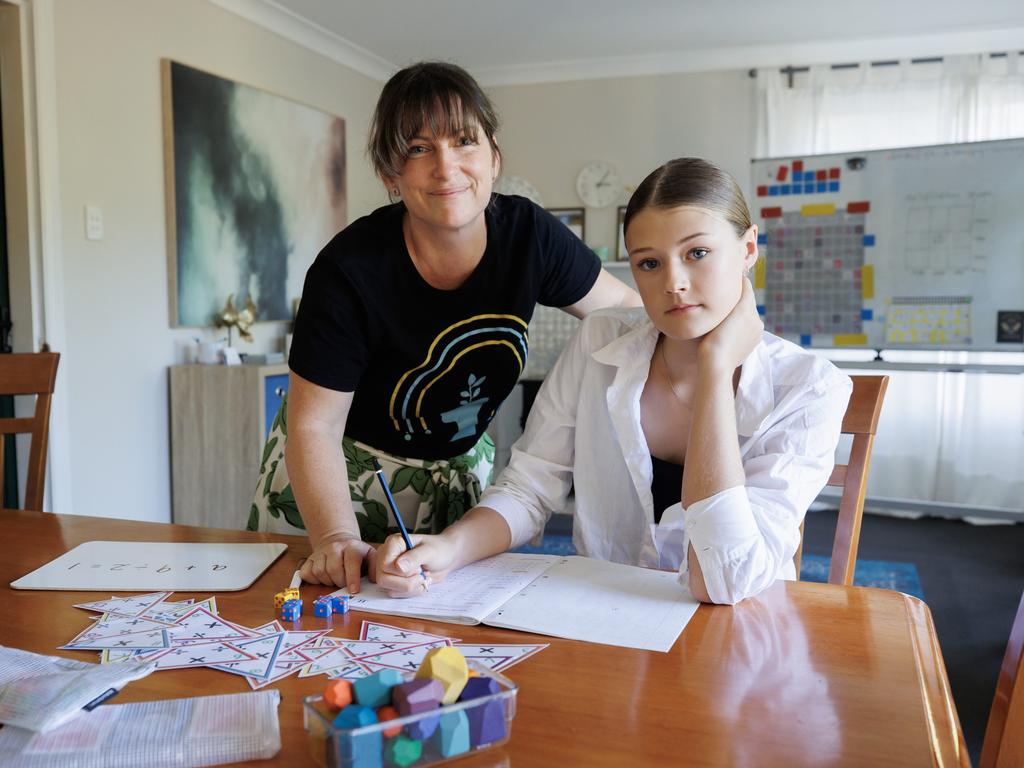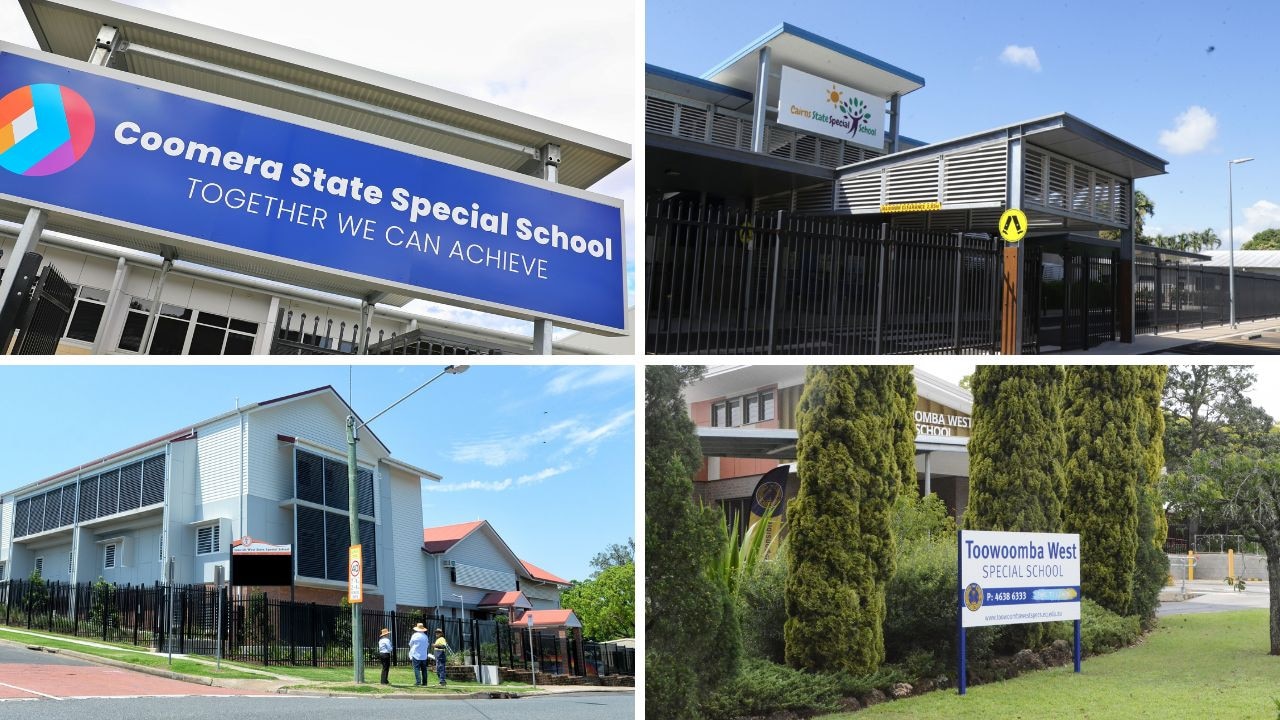Qld PISA results: Students resort to private tutoring amid maths slump
Queensland students have recorded a record low in mathematics, with over half of students unable to attain the knowledge and skills expected of their age, global test results have revealed. HOW WE COMPARE
Schools Hub
Don't miss out on the headlines from Schools Hub. Followed categories will be added to My News.
Queensland has slumped to a record low in mathematics, with over half of students unable to attain the knowledge and skills expected of their age, global test results have revealed.
Just 48 per cent of Queensland 15 year olds met the national proficiency standards for mathematics in the latest Program for International Student Assessment (PISA).
It also showed nearly one in three students are unable to compare total distances across two alternate routes or convert prices into different currencies without direct instruction.
The Australian Council For Educational Research’s PISA test measures the capability of 15-year-olds to use their maths, science and reading skills and knowledge in real-life challenges.
More than 2200 Queensland students aged 15 from 129 schools across Years 9, 10 and 11 sat the tests in 2022 – following two years of disrupted learning.
Queensland has been on a download spiral since the tests began and this year returned its lowest results in all three categories.
To meet the national proficient standard, students must demonstrate more than elementary skills that are expected at their year level.
The 2022 results are in stark contrast to 2003 when the Sunshine State had 66 per cent of its students attaining the national proficiency standard in maths.
About 28 per cent of students also scored the lowest proficiency scores for mathematics, with more females than males.
Centre For Independent Studies director Glenn Fahey said these students would be set up to fail-post school unless Queensland’s results lifted.
He said it was “jarring” that Queensland was now the home to the highest proportion of low performing girls across the mainland states.
“When we fail students in maths, we harm their opportunities in life,” Mr Fahey said.
“We know that jobs in the highest demand are those that demand strong skills in maths. Australians with a good maths background earn higher wages than those who struggle with it.”
Mr Fahey said the biggest losers were the state’s most disadvantaged students – Indigenous, poor students and those in rural and remote areas.
“At the same time, students who are well-off and in cities have fared comparably well. Sadly this is evidence of a two-speed education system,” he said.
Australian Government Primary Principals’ Association president Pat Murphy said the performance on the PISA testing was a reflection of nine years of schooling, not only on 15-year-olds.
Mr Murphy said the results showed how vital it was for public primary schools to be fully funded by 2025.
“If we had the funding that was recommended in the Gonski Review in 2012, we wouldn’t be having these declining results,” Mr Murphy said.

Education Minister Grace Grace argued Queensland’s mean scores were “broadly” unchanged since 2018 and that student performance had held up despite the pandemic.
“Queensland’s results continue to track above the OECD average, but we know more needs to be done and that’s why we have a dedicated STEM strategy in Queensland state schools,” Ms Grace said.
The STEM strategy helps increase student engagement and participation, lift student achievement in STEM learning including science and mathematics resources.
It also builds on students’ creative and critical thinking skills by providing real-world STEM challenges.
KIDS NEED ONE-ON-ONE HELP
Queensland parents are turning to private tutoring companies for one-on-one support that some schools are unable to offer, in a bid to reverse declining mathematics output.
It comes as Queensland recorded a historical low in the 2022 Program for International Student Assessment, tests which shows how kids are tracking in maths, science and reading.
Over a quarter (28 per cent) of Queensland students were among the lowest in PISA proficiency standards for maths, meaning they do not have the knowledge to participate effectively in class.
With many schools feeling the pitch of stretched resources and teacher shortages, parents are looking to private tutors to reverse declining trends.
Former teacher turned tutor Julie Tayyah of Inspired Minds Solutions said the industry was rapidly growing.
The Sunshine Coast-based tutor said most of her clients needing assistance in maths were from Years 4 to 9.
“I feel from my experience. Students who aren’t achieving decent results in maths aren’t able to progress well in other subjects too,” Ms Tayyah said.
“They tend to have other issues like confidence in class, self-doubt, disengagement. It can lead to things like school refusal.”

One of her students, Olivia Henzell, has shown a “massive” improvement in the past two years through one-on-one support.
“She wasn’t able to do basic addition, subtraction or multiplication, which are the foundations of maths,” Ms Tayyah said.
Olivia’s mother Louise said the Year 7 student had initially struggled to grasp mathematics, something that had impacted her overall confidence in other subjects.
“The main reason why we went ahead with Julie, is we wanted her (Olivia) to build her confidence up and to be able to participate in the school setting and feel like she’s being included,” Ms Henzell said.
“She’s done amazing work in building that up and we have had huge improvement in her results.
“Just for her to feel comfortable in class has been such a blessing.”






